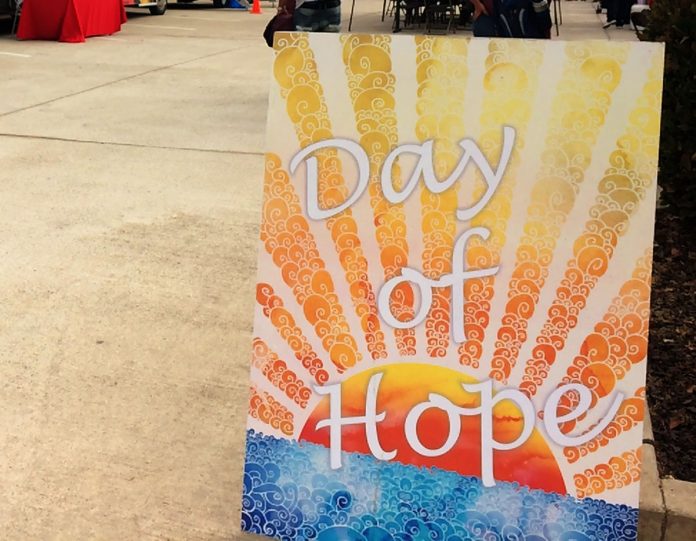A new Chula Vista nonprofit with old roots in the community is working to address the immediate needs of unsheltered homeless people to not only get them off the street but foster hope for a better life.
The organization, led by Executive Director Rosy Vasquez, gets them access to necessary resources and programs, educates them on their situation and ultimately shows them a concrete path to self-sufficiency.
The nonprofit came about following nearly a decade of working with the homeless population through St. Rose of Lima church and also in working with the Chula Vista Police Department’s Homeless Outreach Team.
“What came to mind was a much larger program that focused on the unsheltered homeless crisis and food insecurity,” Vasquez said. She began to work diligently to put together a team of community volunteers, which moved to Turning the Hearts Center on Fifth Avenue.
Ultimately the program outgrew what the organization could sustain and needed to move. In November of 2017, Vasquez and local community leaders Corrie Daniels and Cindy Gliebe decided to file for a 501(c)(3) and on Nov. 9 last year the organization officially opened its doors at 465 C Street in the old Wonderbread building.
Community Through Hope provides case management for unsheltered homeless persons who walk in or are referred through local law enforcement or other agencies.
Although the organization does help unsheltered homeless individuals get into housing, it uses an action-first model that addresses immediate needs, which include assessing for mental health and sobriety issues.
The model the organization uses to address a crisis advocates for these individuals in a way that treats them with equality, dignity and respect.
“The first thing that can be done to address crises is to try and prevent it through outreach, advocacy, engagement and education,” Vasquez said. “If we aren’t able to get to a client before their situation turns into a full-blown crisis then we try and intervene, and that intervention model is what we call the 15 levels.”
The 15 levels are an understanding of where someone’s coming from and figuring out how they got there so the team can serve them where they are currently.
Vasquez estimates that for every year someone is on the street it will take roughly six months to get them back on their feet.
A big part of what Community Through Help does focuses on rebuilding trust with the homeless population to establish a working relationship with them.
“Advocacy means having an understanding for the needs of the client and that takes time,” she said. “Other agencies are set up to process or connect [individuals] with other resources, but not to do the one-on-one advocacy that a client who is truly in a crisis is going to need to get to self-sufficiency.”
She said that a lot of community frustration regarding homelessness comes from the thought that the population is helpless, or doesn’t want help and rejects it.
While services for women, children and families have been around for a while in Chula Vista, Vasquez said it’s only been for the last two years that more resources have become available for unsheltered homeless individuals.
In truth she said about 90 percent have asked for help at some point during their homelessness but because no services were available they were left to their own devices on how to cope.
In addition to providing help for the unsheltered homeless, Community Through Hope also addresses food insecurity among the population by opening the first redistribution hub in the South Bay.
The large warehouse at the 5,700-square-foot facility gives the organization the ability to refrigerate large quantities of perishable healthy food such as fruit, vegetables, bread, eggs, milk and meat, which local pantries can pick up daily and hand out.
On a daily basis Community Through Hope works with organizations including the South Bay Guidance Center, St. Paul’s PACE, Interfaith Shelter Network, San Diego Food Bank, Family Health Centers of San Diego and Chula Vista Police Department, among many others.
The organization also operates The Hope Chest, a thrift store that takes donated clothes and gives them to homeless individuals for everyday wear, special occasions and job interviews. All money from thrift store purchases is used to buy items such as toiletries, emergency hotel rooms, bus passes and other things homeless individuals may need.
The thrift store will be open to the public on Saturday, Jan. 19, from 9 a.m. to 1 p.m.















